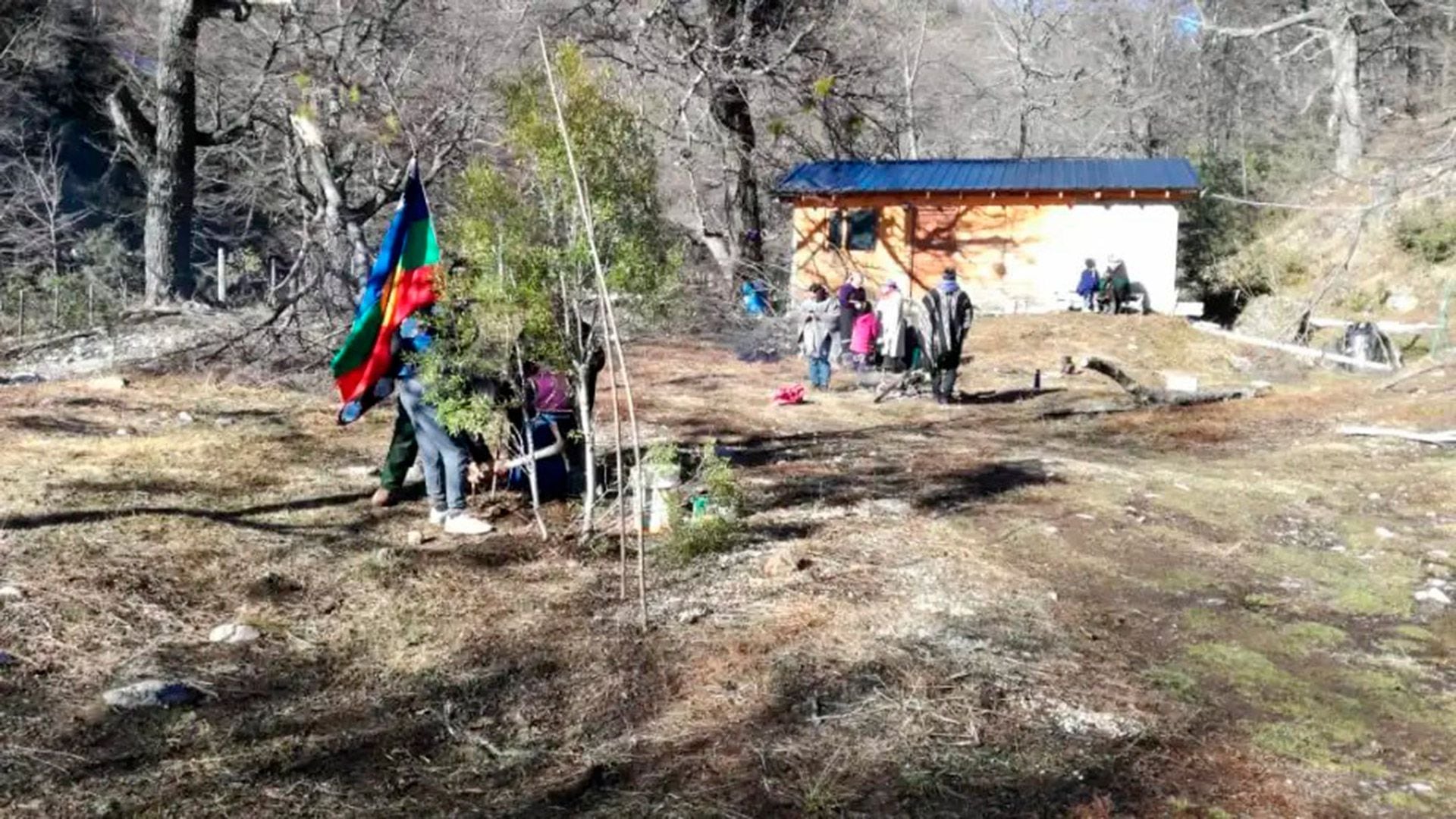
The judicial dispute between a Mapuche community and the owners of 92 hectares a few kilometers from Bariloche is becoming more and more visible, although one of the most striking aspects is a complaint of usurpation that representatives of the “original group” made against those who hold the title to the lands.
In September 2019, the community identified as Lof Che Buenuleo broke into a private property located at the foot of Ventana hill, about 15 kilometers from downtown Bariloche, and stripped its owners, citing an alleged territorial claim. Since then, countless strategies, resources and tools have been put on the table by the parties' lawyers to defend their interests.
In the context of this confrontation — which also included episodes of violence — members of the Mapuche community denounced those who own the property for usurpation.
The letter was signed by Deolinda Buenuleo, who denounced the entry into the territory of several people, who, after damaging the gate at the entrance, began the construction of a box with timber extracted from the site.
“They denounce usurpation even though they don't own the place. The Buenuleos are the ones who usurped in 2019 and the Justice must be issued on the parent cause,” sources with access to the large file told Infobae.
The background
The lands belonged, years ago, to Antonio Buenuleo, who — before his death — would have legitimately traded them. “He acted like a real estate agent,” say those who had contact with him. However, his successors are unaware of these real estate transactions and want to recover what has already been sold.
In this context, which the family proposes it as a plan for the recovery of original lands, on September 10, 2019, several of its members and relatives entered the property, located at the foot of Ventana hill, and stripped their owners of the place and the buildings that were there.

The Rio Negrina justice had ordered the eviction, although a resolution by the National Institute of Indigenous Affairs (INAI) changed the scene and stopped the measure. The organization that presides over the river Magdalena Odarda recognized “the current, traditional and public occupation of the Lof Che Buenuleo Community”.
The document complies with the technical, legal and cadastral survey provided for by law 26,160 on indigenous communities. This survey determined the lands that the Buenuleo community traditionally occupies, ignoring even the documentation submitted by the dispossessed and the real estate operations that Antonio Buenuleo would have carried out.
Odarda's decision, which was published in the Official Gazette the day after the Provincial Court of Challenge (TIP) confirmed the eviction of the property, halted the measure and established a new landscape for litigation.
Despite the turn that this resolution caused in the advance of the case, it was annulled last November by the Administrative Dispute Chamber, which detected “serious shortcomings in its elaboration”, and therefore determined its nullity based on an amparo action filed by the owner of the land in conflict.
The Chamber considered that the national official failed to comply with due process prior to its issuance “affecting with arbitrariness and manifest illegality the actor's right to defence, which is why it is necessary to take the action of amparo promoted and to declare his invalidity”.

The Buenuleos were dismissed last December, although the Superior Court of Justice (STJ) of Río Negro accepted an appeal filed for the complaint and should be issued in the coming days.
Violence
From 2019 to the present day, there were numerous cross-reported episodes of violence, threats and attacks. Last week, the local justice condemned several men linked to the landowner of the land for threatening and injuring members of the Mapuche community on April 29, 2020, in addition to causing damage to housing.
One of the convicted aggressors is, in turn, a complainant in the usurpation case initiated in 2019.
Despite the recent resolution, the clashes between the parties did not stop. On 15 March, when the trial for aggression against members of the community was taking place, the parties filed cross-complaints about a new confrontation that day in the vicinity of the conflicting site.
Sources with access to the file indicated that both writings were attached to the original file in order to move forward with the corresponding judicial process.
Últimas Noticias
Debanhi Escobar: they secured the motel where she was found lifeless in a cistern

The oldest person in the world died at the age of 119

Macabre find in CDMX: they left a body bagged and tied in a taxi
The eagles of America will face Manchester City in a duel of legends. Here are the details

Why is it good to bring dogs out to know the world when they are puppies




